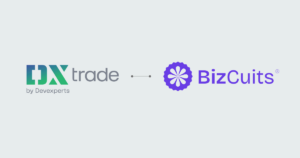Australia’s new dispute resolution body expects ASIC to approve its Rules by mid-September
All financial services firms are obliged to become members of AFCA by September 21, 2018.

The Australian Financial Complaints Authority (AFCA), a new dispute resolution body that is set to start its work in November 2018, has just published its latest edition of Member News. Australian financial services provider should pay attention to AFCA’s updates as membership in this new dispute resolution body is mandatory.
The summer has been a pretty active period for AFCA. It implemented a consultation process for the AFCA Rules and funding model in June and July respectively. The body received submissions from industry organisations, consumer bodies and financial firms.
The AFCA Board considered all feedback received and have approved both the Rules and funding model. A number of changes were made to the Rules in reposnse to stakeholder feedback. Additional information and details were also included in the draft Operational Guidelines, which will provide detailed guidance about how AFCA will interpret and apply the Rules.
AFCA has submitted the Rules to the Australian Securities & Investments Commission (ASIC) for their consideration. At this stage, AFCA anticipates ASIC will approve the Rules by mid-September. AFCA will publish the Rules then, and also intends to release the Operational Guidelines and funding model during the same period.
AFCA has drafted proposed Rules governing its jurisdiction and process for resolving complaints. The Rules, when finalised and approved by ASIC, will apply from the commencement of AFCA on November 1, 2018. The draft Rules reflect mandatory requirements in legislation, regulation and Ministerial requirements. The consultation focuses on changes in the AFCA Rules compared with those of predecessor schemes, including the incorporation of the Superannuation Complaints Tribunal’s current jurisdiction in the AFCA Rules.
Regarding the funding model, let’s recall that it is broadly based on the existing EDR scheme funding arrangements. This is a three-phase funding model, consisting of initial transition funding for establishing AFCA, an interim funding stage, and a long-term funding stage.
- Phase I – Transition funding
This funding will be dedicated to meeting the costs of AFCA’s establishment so that it is adequately prepared to receive and handle complaints from commencement of its operations in November 2018. Te transition funding covers governance-related costs (including legal, financial, audit and other compliance costs) and the costs of establishing AFCA (project management, complaint reporting applications, website development, technology, training, communications and engagement, and other similar costs) so that the new body is ready to receive up to 1,000 complaints in the first week of commencement.
- Phase II – Interim funding model
This funding model will apply for the first three years of AFCA operations (FY2018/2019 – FY2020/2021). During this period a hybrid funding model is proposed to be applied – based on aspects of the existing scheme funding arrangements for Firms that are FOS and CIO scheme members, and the APRA levy model for superannuation trustees who become AFCA members.
The interim funding arrangements will apply while AFCA establishes an evidence base of complaint volumes and complexity in an expanded jurisdiction, and settles complaint handling approaches and required skills/resources to manage the full range of complaints.
- Phase III – A long-term funding model
This model is set to be adopted following a full funding review based on complaint forecasts, operational efficiency savings across the consolidated scheme, and resource requirements for the long-term future of AFCA. The long-term funding model is proposed to be implemented from July 2021.
The three components of the proposed funding model are:
- Membership levy based on the size and type of business;
- User charge based on the number of complaints (for firms with more than one complaint closed past the initial Registration and Referral stage);
- Complaint fees based on complaint complexity and their solution stage reached.
Let’s also note that AFCA has recently released an updated guidance for financial firms on how to let their customers know about AFCA. From September 21, 2018, AFCA members must ensure that IDR final response letters and ‘delay letters’ include references to both the relevant predecessor external dispute resolution (EDR) scheme (which will be able to receive complaints only up until 31 October 2018) and AFCA (which will be able to receive complaints on and after 1 November 2018).
Between November 1, 2018 and February 1, 2019, such letters may continue to include references to both the predecessor EDR scheme and AFCA, provided it is clear that only AFCA can receive complaints after November 1, 2018.
On or after February 1, 2019, such letters must include references to AFCA but not the predecessor EDR schemes.









